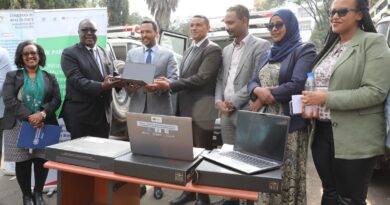NAQEZ Expresses Grave Concerns Over Teacher Salary Negotiations for 2024
Dr. Aaron Chansa, the Executive Director of the National Action for Quality Education in Zambia (NAQEZ), expressed deep concern and disappointment over the outcome of the 2023/2024 collective bargaining for improved conditions of service for teachers.
The organization believes that the 2024 outlook for teachers in Zambia appears bleak following the recent negotiations.
Dr. Chansa emphasized the importance of collective bargaining, as stipulated in Section 68 of the Industrial and Labour Relations Act, Cap 269 of the Laws of Zambia, as a crucial process for addressing labor issues affecting workers. However, he highlighted that the bargaining process missed a significant opportunity to uplift and motivate teachers.
“At a time when all teachers expected a reasonable increase in their salaries to cope with the ever-rising cost of living, it is very painful to accept the fact that the Government and teacher unions agreed to an across-the-board salary increase of only five hundred fifty Kwacha (K550),” remarked Mr. Chansa.
While there was a marginal increase in the transport allowance from 15% to 20% of one’s basic pay, Dr. Chansa argued that the difference would not make economic sense, especially considering the challenging economic conditions faced by teachers.
Of particular concern to NAQEZ is the silence surrounding critical issues such as salary scale upgrades, confirmations, and the re-introduction of salary notches.
These longstanding issues have plagued teachers for years, and the lack of attention to them in the bargaining process is expected to have a detrimental impact on the morale and productivity of teachers across the country.
Dr. Chansa urged the unions to initiate the bargaining process ahead of the national budget compilation and presentation to Parliament to avoid relegating negotiations to a mere academic exercise.
In a bid to address the financial challenges faced by teachers, NAQEZ recommended that unions explore innovative solutions, such as the introduction of contributory provident funds for housing and education schemes.
These initiatives, if implemented, could assist teachers in acquiring decent houses before retirement and enable them to save for their children’s tertiary education.
In light of the country’s volatile exchange rate, an inflation rate exceeding 11%, and the rising cost of living, Dr. Chansa concluded that the proposed salary increase of only K550 was insufficient and described it as a “mockery” and a “painful drop in the ocean” for the dedicated teachers of Zambia.
NAQEZ is calling for a reevaluation of the negotiation terms to ensure fair and just compensation for the invaluable contributions of teachers to the nation’s education system.



